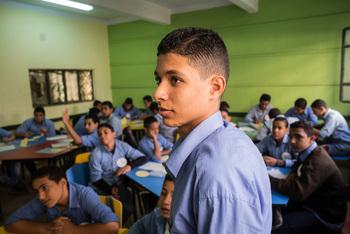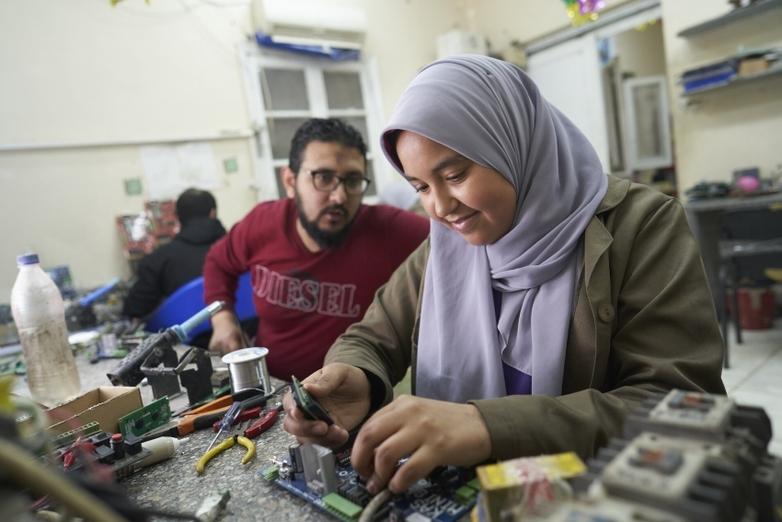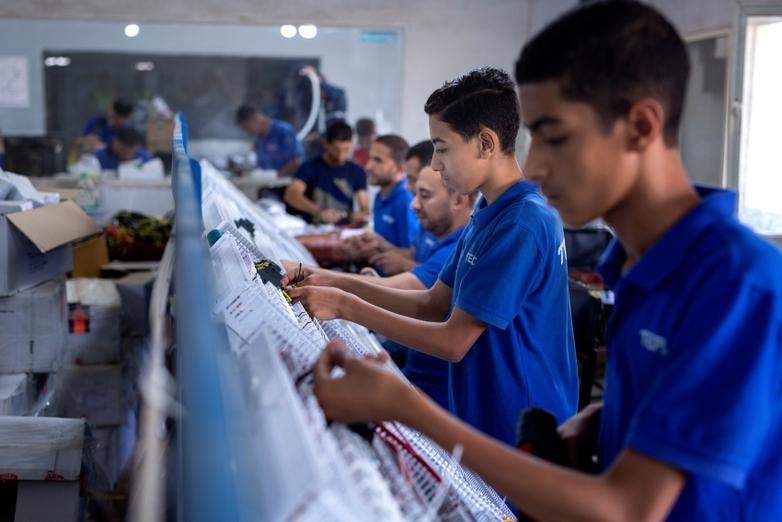Context
Creating productive and decent jobs is one of Egypt's biggest economic and social challenges. According to the International Labour Organization (ILO), almost eight per cent of Egypt's labour force were registered as unemployed in 2020. Youth unemployment stood at more than 17 per cent, with young women being particularly affected by unemployment at more than 43 per cent. An estimated 63 per cent of the working population is informally or precariously employed (Economic Research Forum, ERF, 2018). The situation on the Egyptian labour market is closely linked to Egypt's demographic development. According to the ERF, a net increase in the labour force of 800,000 people per year is expected between 2030 and 35. Sufficient productive jobs must be made available for the new young population entering the labour market so that youth unemployment, underemployment and precarious employment do not increase further. To adapt to the effects of climate change, the economy and labour markets will require an adequately qualified workforce.



